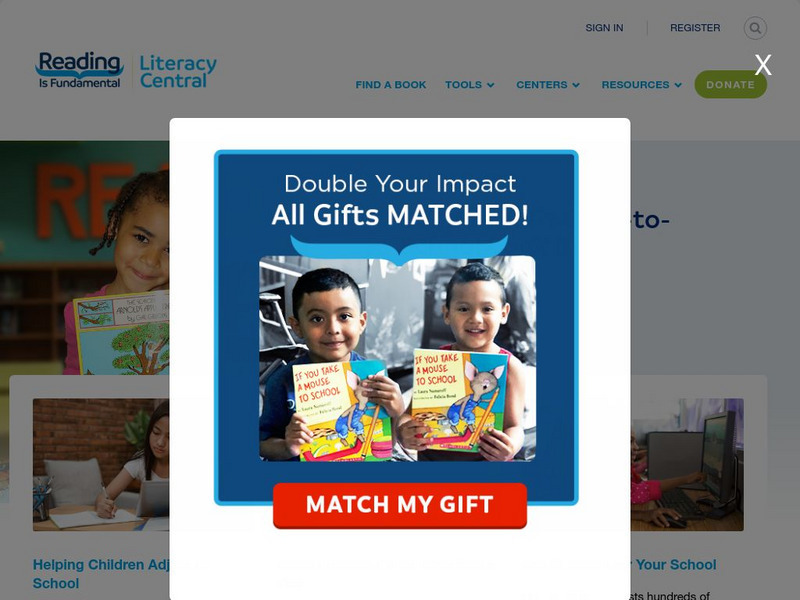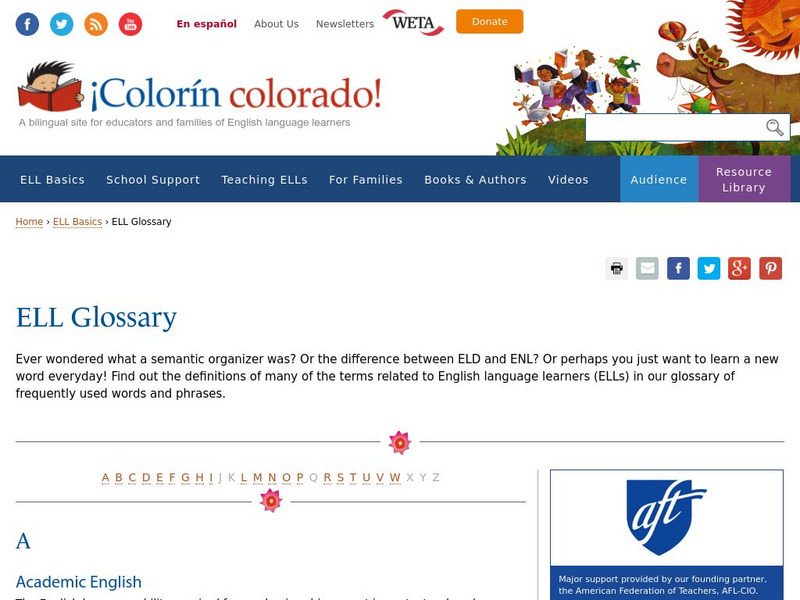Hi, what do you want to do?
Curated OER
The Quatrain
Students analyze the quatrain structure and rhyming in the song, "Puddles". They use this format to create their own quatrain lyrics for a song then they share their song ang revise it.
Curated OER
Wisconsin
Fourth graders brainstorm a list of places they have visited in Wisconsin. They watch a video "Cultural Horizons." Students use the CD and find on a map several locations in Wisconsin. Students bring in photos, pictures, and artifacts...
Curated OER
Students Involved in the Community
Eighth graders discuss the importance of serving in the community. Individually, they choose a community agency or program to volunteer for a specific period of time. They realize their sense of pride and accomplishment as well as...
Curated OER
I Am A Musician- Interview A Musician
Students, as a class, interview musician to find out more about him/her as an individual. Students then write thank you notes and include, by naming or drawing, one fact learned about the musician.
Curated OER
My Favorite Birthday Story
Students are taught that most people have different birthday days, and realize it is something that makes them unique and special. They bring in a photograph of their favorite birthday. Students write or dictate a story about their...
Reading Is Fundamental
Reading Is Fundamental: Tips and Resources
Here are some ideas to encourage reading for children of all ages as well as the whole family to try. It provides reading tools including a new literary assessment tool "Literacy Tracker."
AdLit
Ad lit.org: Understanding Assessment Options for Idea Eligible Students
The No Child Left Behind law requires each school test students in Reading/Language Arts & Math each year in grades 3-8, and at least once more in grades 10-12. In some cases, children eligible for Individuals with Disabilities...
North Central Regional Educational Laboratory
Assessing Young Children's Progress Appropriately
This article focuses on the critical issue of how to assess your young child's progress appropriately. Students, teachers and parents will benefit from this informative article. The article features contact information to learn more...
The Wonder of Science
The Wonder of Science: 1 Ls3 1:plant and Animal Structures Parents and Offspring
This NSTA vetted source includes resources to teach that young plants and animals are alike, but not exactly like, their parents. Included are assessment ideas, videos, examples, lesson plans, and photos of student work.
Center for Parent Information and Resources
Nichcy: Services in Your State for Infants and Toddlers
Parents of children ages birth through 5 years will find information on who to contact, what services they are entitled to, a dictionary of terms used in special education, and much more.
PBS
Colorin Colorado: Ell Glossary
Bilingual reference resource, English/Spanish. Contains a huge range of resources for teachers and hispanic parents, including a glossary of educational terms, assessment, literacy, disabilities, and much more.
PBS
Colorin Colorado: Ell Glossary
Bilingual reference resource, English/Spanish. Contains a huge range of resources for teachers and hispanic parents, including a glossary of educational terms, assessment, literacy, disabilities, and much more.
Queen's Printer for Ontario
E workshop.on.ca: Effective Instr'n in Math, K 6: Assess't Home Connections [Pdf]
Volume 4 in an eworkshop Guide to Effective Instruction in Math outlines and illustrates instructional strategies for assessing mathematical understanding of students in K-6 and for promoting positive interactions with families about the...
Incredible Art Department
The Incredible Art Department: Files for Art Teachers
A large collection of files that have been contributed by art teachers. Examples of topics include rubrics, lessons, ideas for critiquing art, assessments, icebreakers, classroom management, games, parent communication, and lots more.
Centers for Disease Control and Prevention
Centers for Disease Control: Kids' Quest on Disability and Health
KQ, the techno-health wizard, lets kids choose a WebQuest about a disability-related question they may have been wondering about. They get a page of activities and resources about Autism, Vision Impairment, Mobility Restriction, etc.,...
Other
Criteria for Authentic Project Based Learning
Check out this site to view a comprehensive list of criteria for project-based learning. This simple list is the perfect resource for parents, teachers, and students.
Reading Rockets
Reading Rockets: Looking at Writing: Pre K
In this section, you'll find writing assessment resources, writing strategies, and additional tip sheets for teachers and parents on how to help preschoolers build strong writing skills. You'll also find a video modeling classroom...
Rock and Roll Hall of Fame
Rock & Roll Hall of Fame: Lesson 50: Using Music to Teach Personal Narrative
The personal narrative, apart from appearing as an option in the writing component of many state assessment tests, is a form of writing which allows students the chance to reflect seriously and honestly on important events in their own...
Reading Rockets
Reading Rockets: Looking at Writing: First Grade
First graders write many times a day to express their interests - they are writing with a purpose through stories, letters, and lists. In this section, you'll find writing assessment resources, writing strategies, and additional tip...
CommonLit
Common Lit: "Don't Hate on the Trait" by Bird Brain Science
CommonLit.org is a wonderful resource to use in a Language Arts classroom. Each story or article is accompanied by guided reading questions, assessment questions, and discussion questions. In addition, students can click on words to see...
Reading Rockets
Reading Rockets: Looking at Writing: Third Grade
In this section, you'll find writing assessment resources, writing strategies, and additional tip sheets for teachers and parents on how to help third graders build strong writing skills. You'll also find videos on teaching writing....
Reading Rockets
Reading Rockets: Looking at Writing: Second Grade
In this section, you'll find writing assessment resources, writing strategies, and additional tip sheets for teachers and parents on how to help second graders build strong writing skills. You'll also find videos on teaching writing....
Reading Rockets
Reading Rockets: Looking at Writing: Kindergarten
In this section, you'll find writing assessment resources, writing strategies, and additional tip sheets for teachers and parents on how to help kindergarteners build strong writing skills. You'll also find video on teaching writing....















